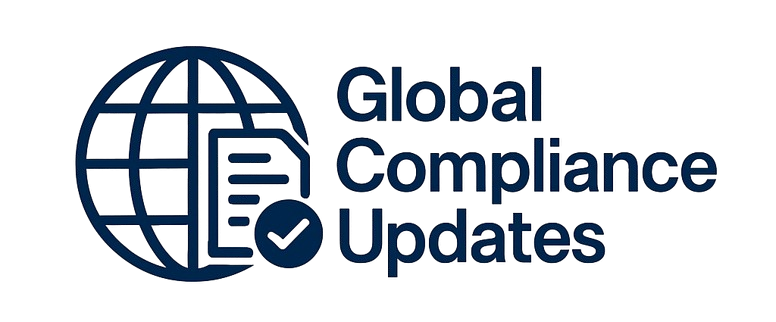WHY SHOULD YOU ATTEND?
Human errors are not just frustrating—they’re expensive, non-compliant, and largely preventable. This session addresses the silent system flaws that often set personnel up for failure. We'll explore critical questions: Are your SOPs clear and actionable? Is your training tailored to real-world challenges? Does your environment support or sabotage performance? This webinar will help you identify hidden root causes and provide ready-to-use tools to reduce repeat deviations and CAPA recurrence. It's not just about fixing errors—it's about designing operations where errors are unlikely to happen in the first place.AREA COVERED
- Human Error as the Root Cause
- What is Human Error
- How is Human Error controlled?
- Root Cause Determination
- Types of error
- Human error and training: when and where
- Human error rates and measurement
- Trending and tracking
- Prediction
- CAPA effectiveness
- ChatGPT Integration
LEARNING OBJECTIVES
- Understand why human error is rarely the true root cause in deviation investigations.
- Learn how to align error reduction strategies with 21 CFR Part 211.22 and FDA expectations.
- Explore types of human error and how to classify, measure, and trend them.
- Gain insights into human behavior, cognitive load, and error-prone systems.
- Improve CAPA effectiveness with targeted error prevention strategies.
- Learn how to evaluate procedures, training effectiveness, and environmental influences.
- Integrate digital tools like ChatGPT to enhance root cause investigations and predictive tracking.
WHO WILL BENEFIT?
- Quality Assurance Teams
- Quality Control Teams
- Manufacturing & Operations Teams
- Training Managers & Coordinators
- Compliance & Regulatory Affairs Professionals
- Plant & Process Engineers
- Continuous Improvement / Process Excellence Teams
- Legal and Corporate Counsel in regulated environments
- Human Error as the Root Cause
- What is Human Error
- How is Human Error controlled?
- Root Cause Determination
- Types of error
- Human error and training: when and where
- Human error rates and measurement
- Trending and tracking
- Prediction
- CAPA effectiveness
- ChatGPT Integration
- Understand why human error is rarely the true root cause in deviation investigations.
- Learn how to align error reduction strategies with 21 CFR Part 211.22 and FDA expectations.
- Explore types of human error and how to classify, measure, and trend them.
- Gain insights into human behavior, cognitive load, and error-prone systems.
- Improve CAPA effectiveness with targeted error prevention strategies.
- Learn how to evaluate procedures, training effectiveness, and environmental influences.
- Integrate digital tools like ChatGPT to enhance root cause investigations and predictive tracking.
- Quality Assurance Teams
- Quality Control Teams
- Manufacturing & Operations Teams
- Training Managers & Coordinators
- Compliance & Regulatory Affairs Professionals
- Plant & Process Engineers
- Continuous Improvement / Process Excellence Teams
- Legal and Corporate Counsel in regulated environments
Speaker Profile
 Ginette M. Collazo
Ginette M. Collazo
Ginette Collazo, Ph.D. is an Industrial-Organizational Psychologist with 20 years of experience that specializes in Engineering Psychology and Human Reliability, disciplines that study the interaction between human behavior and productivity. She has held positions leading training and human reliability programs in the Pharmaceutical and Medical Device Manufacturing Industry.Nine years ago, Dr. Collazo established Human Error Solutions (HES), a Florida based boutique consulting firm, where she has been able to position herself as one of the few Human Error Reduction Experts in the world. HES, led by Dr. Collazo, developed a unique methodology for human error investigations, cause determination, CA-PA development …
Upcoming Webinars

The Importance of the first 5 seconds when presenting

Project Management for administrative professionals

How to Reduce Human Error in a GMP Manufacturing Floor

Trump’s Executive Orders on DEI and Disparate Impact, and t…

How Accountants Can Use Chat GPT Effectively


The OBBBA Era & Beyond: Your 2025 Playbook for Compliance a…

Pivot tables beginner to advanced + 20 advanced Pivot table…

Changing Behavior: Why Rewards and Punishments Often Aren't…

Launch Your Career: The Ultimate Guide for Emerging Profess…

ChatGPT Unlocked: A Beginner’s Guide to AI and ChatGPT

Managing Toxic & Other Employees Who Have Attitude Issues

Data Integrity – In compliance with CSA, 21 CFR Part 11, Sa…

Effectively Handle Toxic People for Better Productivity and…

Re-imagine Finance & Accounting Made Simple. Three Webinars…

Employee Handbooks: 2025 Critical Issues

Better Business Writing-How to Write Right

The five qualities every successful leader must develop



How to Lead and Manage a Narcissistic Employee

Use of AI and GPT for Finance Professionals

ChatGPT and Project Management: Leveraging AI for Project M…

Analytical Method Validation Under Good Laboratory Practic…

Harassment, Bullying, Gossip, Confrontational and Disruptiv…

Excel What-If-Analysis Decision-Making Tools

How to Write Contracts for Procurement Professionals

Maximizing Productivity with ChatGPT: AI Solutions for HR, …

I-9 Audits: Strengthening Your Immigration Compliance Strat…

Dealing With Difficult People: At Work & In Life

Excel - Reporting Simplified - Learn Pivot Tables from Scra…



Retention Starts Here: Stop Losing Your Critical Talent and…

Turning Workplace Conflict into Positive Connection

Project Management for Non-Project Managers - How to commun…


The Business Case for LGBTQIA+ Inclusion in the Workplace: …

Conquer Toxic People - Learn To Protect Yourself And Get Yo…


AI-Powered Change Leadership Operationalizing AI: Practical…

AI and Human Resources: The Great Opportunity!

Cyber Security Incident Response Team Training Program

Transforming Anger And Conflict Into Collaborative Problem …


The Courage to Speak: Overcoming Fear and Owning the Room

Finance & Accounting 101 Simplified

6-Hour Virtual Boot Camp on Microsoft Power BI
